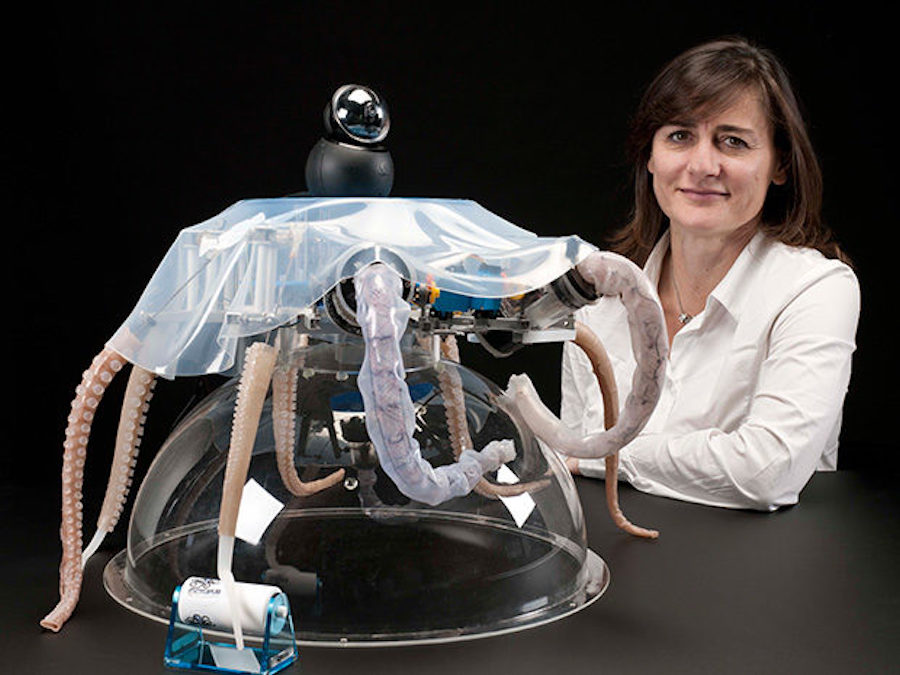
Robohub.org
Q&A with Cecilia Laschi – The Robotics Flagship
 Why is a Robotics Flagship needed?
Why is a Robotics Flagship needed?
Robotics is a solid technological field, with important market opportunities. Europe contributed significantly to the growth of knowledge in this field and it is competitive, both in science and in industry. A European investment in robotics, with a long-term vision on the scale of a FET-Flagship, can take advantage of European competitiveness to boost industry and promote the robotics market expected across many service sectors. A public European initiative can also guarantee responsible robotics progress that produces beneficial socio-economic impacts, sustainable technological developments, welfare and jobs.
What challenges do we face in robotics?
Though solid and robust, robotics technologies still find natural environments and human interaction challenging. Some human activities are hard for robots, yet they are often the activities we would like robots to do, such as preventing danger to human lives, physical and mental stress, and humiliation. The challenge is making robots intelligent and adaptable enough to perform dangerous, arduous, annoying tasks for humankind, in our real world. This is due to challenges in the way robots are built. We need to make them more adaptable, flexible, and strong. They should perceive and understand their environment, be more intelligent and able to learn. They should also interact better with people, to make them more socially acceptable and intuitive to use. This new generation of robots should integrate smoothly in the environment by being energy-efficiency, and by limiting e-waste production,
But the challenges we have to face are not just technological: we need to devise the social and the economic models that can take advantage of robots at work and make an equitable use of the wealth produced.
What do we need to overcome these challenges?
We need to take advantage of current robotics technologies and current advances in other disciplines, to explore new approaches, combining interdisciplinary knowledge and methods. We should focus on the needs of potential users, being them companies, public bodies, citizens, in the variety of fields where robotics has potential for bringing benefits and progress.
What do you imagine will be the robot of the future and its role in society?
I envisage a variety of different robots in our future society, taking care of hard work, producing wealth for humans, helping humans in daily life and reaching areas humans cannot. The right question to ask is what role human beings should have in the future, and which technological progress is needed to fulfil this vision. By delegating hard and tedious work to robots, people can focus on the most rewarding life activities, involving social relations, creativity, personalised production, empathy.
Stay tuned for more Q&As from the Robotics Flagship. Results from the Preparatory Action application will be announced early December at the ICT Conference in Vienna.




